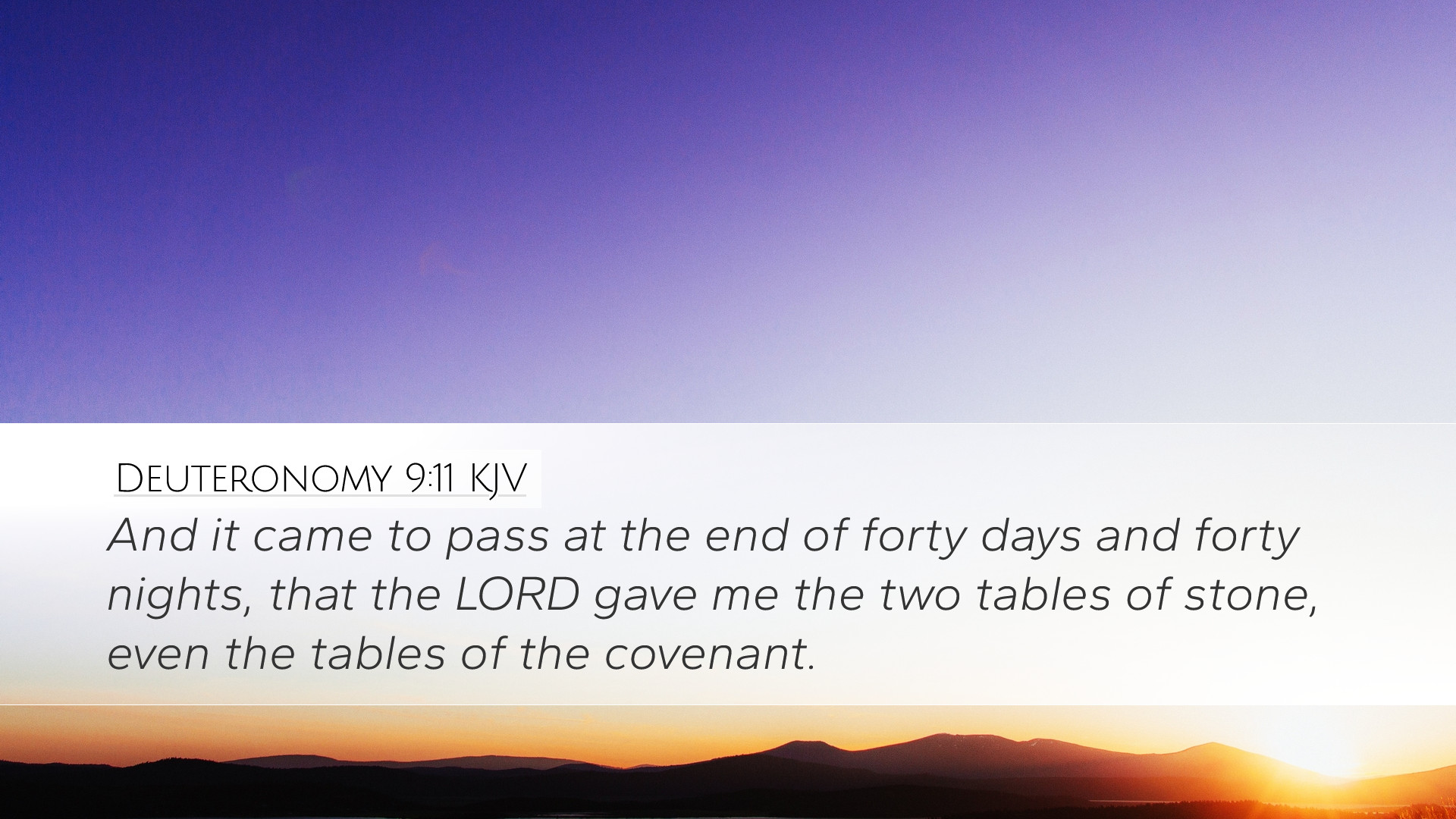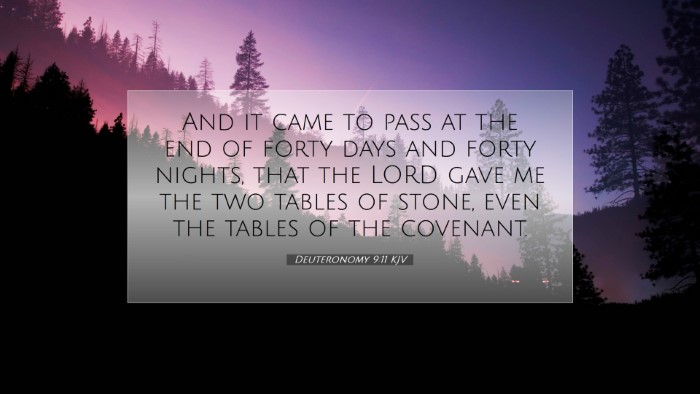Commentary on Deuteronomy 9:11
Deuteronomy 9:11 states: "And it came to pass, at the end of forty days and forty nights, that the LORD gave me the two tables of stone, even the tables of the covenant." This verse marks a pivotal moment in the relationship between God, His people, and the covenant established at Sinai. Below is a compilation of insights from various public domain commentaries that delve into its significance.
Contextual Background
This verse occurs within the broader narrative of Israel's journey from Egypt to the Promised Land. Following the exodus, Moses ascends Mount Sinai to receive the law, which embodies God's covenant with Israel. The mention of "forty days and forty nights" serves not only to underscore the miraculous nature of Moses' encounter with God but also to reflect upon the theme of testing and preparation.
Moses and His Role
Moses, as a mediator, played a crucial role in guiding the Israelites through their covenant journey. Matthew Henry elaborates on this notion by emphasizing that Moses received the law not for his own sake, but as a gift for the people of Israel. He portrays Moses as a type of Christ, who intercedes on behalf of God’s people.
Intercession
Albert Barnes notes that the act of Moses receiving the tablets reflects the intercessory role he embodied. Just as Moses sought to ensure that the Israelites were obedient to God's laws, pastors today are called to intercede for their congregations, guiding them towards a deeper understanding of God's commands.
The Two Tables of Stone
The "two tables of stone" bear a profound significance as they represent not merely a legal code, but the essence of the covenant relationship between God and Israel. Adam Clarke observes that these tables symbolize both God's desire for relationship and the moral obligations He places upon humanity. The physical nature of the stones suggests permanence, as this covenant would endure through generations.
The Covenant's Importance
This covenant served as a foundation for Israel's identity as God's chosen people. The laws inscribed on the tables guide their conduct and illustrate the holy nature of God’s character. As Matthew Henry points out, the covenant was not only meant to govern Israel's behavior but to keep them grounded in their unique relationship with God.
Divine Revelation
The forty days of communion also emphasize God's revelation. During this extended period, Moses was enveloped in divine instruction, highlighting how crucial it is for leaders to seek God's wisdom. As scholars and theologians reflect on this passage, they are reminded of the importance of being attentive to God's voice in their ministries.
Purpose and Divine Will
Furthermore, divine revelation in this context is a reminder that God's laws are intrinsically linked to His will. Albert Barnes points out the importance of obeying these laws not merely out of duty, but out of a deep reverence for the divine authority that introduced them.
Lessons for Today
Overall, Deuteronomy 9:11 serves as a critical reflection for contemporary readers. It challenges pastors, students, and theologians to contemplate their commitment to God's covenant, the importance of intercession, and the need for perseverance in seeking divine revelation.
- God's Covenant: Understanding the depth of the covenant helps inform how we engage with our faith.
- Mediators of the Faith: Like Moses, leaders today are called to intercede on behalf of their communities.
- Importance of God's Law: God's commands are not outdated; they remain a guide through the complexities of life.
- Revelation Through Silence: In our fast-paced society, we must carve out time to listen for God's voice.
Conclusion
Deuteronomy 9:11 encapsulates a moment of divine encounter, presenting a framework for understanding the multifaceted relationship between God and humanity. The insights derived from influential commentaries remind us of our responsibilities as bearers of the covenant and the continuous nature of God’s revelation. May we strive to emulate Moses' dedication to God and His covenant, leading our lives in accordance with His will.


